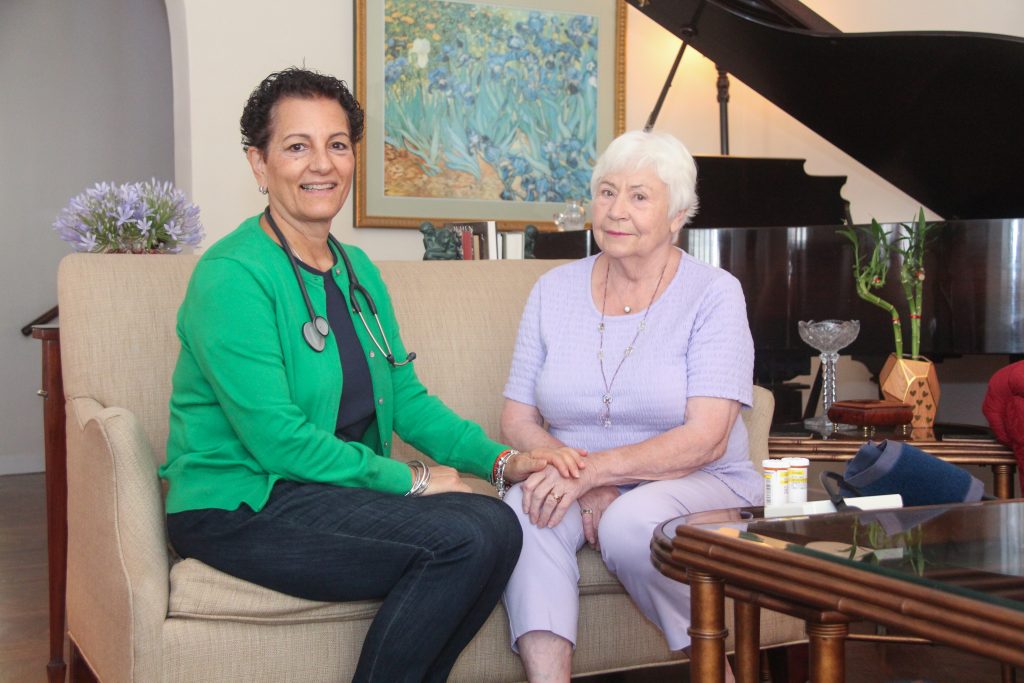Talking to families about hospice
From the Outreach Nurse: by Chris Ritzo, RN, BSN
As nurses and social workers on the clinical outreach team, our primary job is to talk to families about hospice.
We make informational visits to anyone who’s interested in learning about hospice care, whether now or in the future. We meet people in their homes, hospital rooms, care facilities – and even coffee shops and offices. We meet with patients, family members, or both. Sometimes adult children will call us on behalf of their parents.
 Our goal at all of these visits is to educate and answer questions. We find that many people are unfamiliar with hospice, which is a specialized kind of palliative care for people nearing the end of their lives.
Our goal at all of these visits is to educate and answer questions. We find that many people are unfamiliar with hospice, which is a specialized kind of palliative care for people nearing the end of their lives.
We always emphasize that entering hospice care is a choice. With a referral from a physician, each patient gets to decide whether to begin hospice care, and also which agency they want to provide that care. While a physician may refer you to a particular hospice provider, you can always ask for a different organization.
One of the common myths we hear is that once someone goes onto hospice care, they are “giving up.” That’s not the case at all – we like to say that hospice helps someone make the most of the time they have left. The wraparound support hospice provides not only helps ease physical symptoms, but also includes emotional and spiritual support for the whole family.
Because of this comprehensive support, some patients become more stable and even go on to “graduate” from hospice. And if a new advanced treatment becomes available, a patient may opt to leave hospice in order to pursue that treatment. It’s all the patient’s choice.
 In addition to explaining hospice care, our outreach team helps families understand and navigate their benefits. Many people don’t realize that Medicare and most private insurance cover hospice, including related equipment and prescriptions.
In addition to explaining hospice care, our outreach team helps families understand and navigate their benefits. Many people don’t realize that Medicare and most private insurance cover hospice, including related equipment and prescriptions.
Sometimes patients aren’t ready for, or don’t qualify for, hospice. We can refer those patients to one of our partner physicians who specialize in palliative care, and who even make house calls. Our team can add the support of social workers and volunteers through our Transitions program.
Recently, I got a call from a woman who said, “I’m not sick, but I’m old. I want to get my ducks in a row.” I’ve been helping her complete her advance health care directive and learn about hospice care for when she’s ready.
We love it when patients plan ahead. It’s a lot easier to consider your options before you need them, than to make decisions under pressure when you’re acutely ill. Dying is a normal part of life, and our role in clinical outreach is to help you prepare.
If you are a potential patient or family member or have questions about our care, please contact us and our Clinical Outreach team members will contact you for a complimentary phone call or visit.

